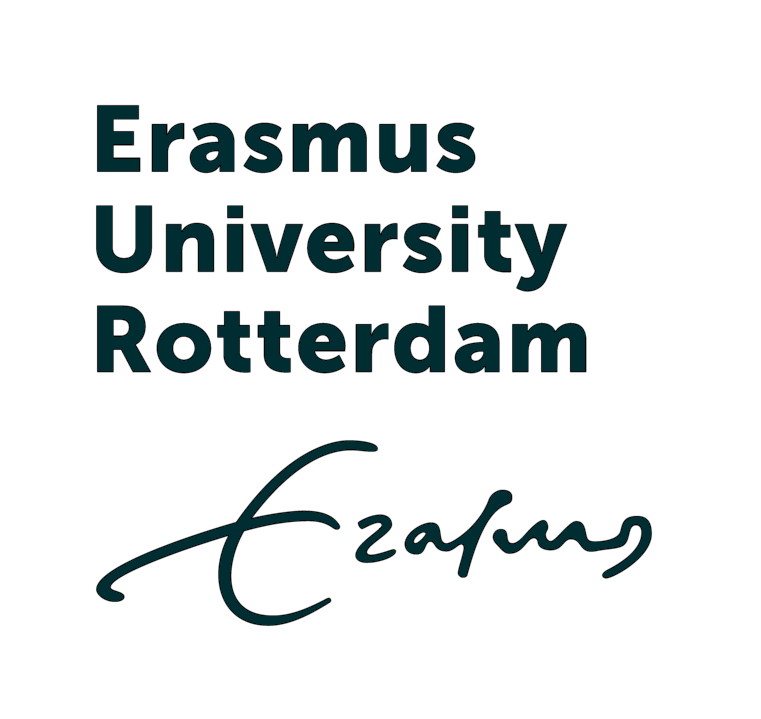Best European Countries to Study Abroad
Top Destinations for International Students
Europe is known for its diverse educational landscape, offering students from around the globe the opportunity to engage in high-quality education while experiencing rich cultural heritage. Studying abroad in Europe can be an adventurous and enlightening experience, leading to personal growth and improved career prospects. International students often seek out European countries not only for their academic excellence but also for the vibrant cultural mosaic and historical significance.

Selecting the ideal European country for your studies can be a nuanced decision influenced by factors such as language of instruction, cost of living, and the presence of globally recognized institutions. Each country has its own unique offerings from the bustling cities of Germany to the historic universities in the United Kingdom, the educational rigor in Finland, and the sunny campuses of Spain. Understanding the application process, accommodation options, and integration into the local culture are also essential steps in preparing for a successful educational stint abroad.
Key Takeaways
- European countries offer a blend of high-quality education and cultural experiences.
- Choosing the right country depends on personal, academic, and financial considerations.
- Preparation for studying in Europe includes understanding the application process and living arrangements.
Why Study in Europe?
Europe is renowned for its high-quality education and rich cultural diversity. Students choosing to study in Europe benefit from prestigious academic institutions and an array of languages and cultures, all while often facing lower tuition fees than in other regions.
Diverse Educational Landscape
Europe boasts a variety of educational systems and institutions. Students can choose from world-class research universities in Germany, specialized business schools in France, and ancient institutions of higher learning in the United Kingdom. This diversity allows students to find programs that align closely with their academic and career aspirations.
Cultural Enrichment
Studying in Europe provides an unparalleled opportunity for cultural exposure. Students can immerse themselves in different traditions, histories, and arts throughout the continent. This infusion of culture extends beyond the classroom, offering a holistic learning experience that shapes global citizens.
Affordable Tuition Fees
Many European countries offer affordable tuition rates, especially compared to the costs of universities in the United States. With countries like Germany providing free tuition to international students at public universities, Europe becomes an attractive destination for those seeking a quality education without incurring substantial debt.
Languages and Multilingual Environment
Europe’s multilingual environment enriches the educational experience. By studying in countries like Spain or Italy, students can master a new language, an advantage that is highly regarded by employers in today’s global job market. Moreover, many European institutions offer programs in English, ensuring that a myriad of students can access their courses. At Beyond The States our database includes more than 11,000 programs taught entirely in English.
Top European Destinations for International Students

Europe offers an array of esteemed educational institutions, rich cultural experiences, and diverse linguistic opportunities, making it a prime destination for international students seeking quality higher education.
1. Germany
Germany is revered for its robust education system and no tuition fees at public universities for both domestic and international students. Cities like Berlin and Munich are renowned for their research universities and a high quality of life.
- Boasts over 1,000 programs taught entirely in English.
- Known for strong engineering and technology courses.
- Offers opportunities for research scholarships in various fields.
2. United Kingdom
The United Kingdom boasts some of the world’s most prestigious universities, including Oxford and Cambridge. International students flock here for the acclaimed academic programs and the English-speaking environment.
- Home to over 130 universities and colleges offering diverse academic programs.
- Highly regarded for its contributions to scientific research.
- Provides a rich cultural experience in historical cities.
3. Netherlands
With a large selection of courses taught in English and an inclusive atmosphere, the Netherlands presents a welcoming environment for international students. Dutch universities are known for their innovative teaching methods.
- More than 2,100 English-taught programs across various disciplines.
- Known for pioneering sustainability studies and innovative courses.
- Offers a multicultural environment with a high standard of living.
4. Sweden
Sweden’s education system is characterized by its openness and student-centric approach. International students are drawn to Sweden for its high-ranking universities and strong emphasis on research and development.
- Offers numerous scholarships for international students.
- Promotes a student-friendly atmosphere with accessible campuses.
- Focuses on collaborative and interactive learning methods.
5. France
France’s historic universities and beautiful campuses attract students globally. The nation prides itself on its artistic heritage and scientific contributions, offering a diverse educational experience with some programs offered in English.
- Renowned for its fine arts and humanities programs in prestigious institutions.
- Provides various grants and financial aid options for international students.
- Offers an immersive cultural experience in a historically rich setting.
6. Spain
Known for its nearly perfect climate and vibrant culture, Spain offers a relaxed lifestyle alongside a growing reputation for quality higher education, particularly in subjects like hospitality and business.
- Provides a thriving environment for business and tourism studies.
- Offers programs in English in diverse fields like renewable energy and healthcare.
- Known for its vibrant social life and affordable living costs.
7. Italy
Italy is esteemed for its rich cultural legacy and excellence in the arts and design. There’s deep history on almost every corner. Italian universities are also renowned for their culinary arts and architecture programs, providing a unique learning atmosphere. You’d be surprised by how many programs in Italy are taught entirely in English. As of this writing our database has more than 600, with additional programs being added each year.
- Hosts hundreds of programs taught in English, encompassing arts, design, and technology.
- Celebrated for its rich history in arts, architecture, and fashion.
- Offers a blend of cultural immersion and academic excellence in a picturesque setting.
FREE INSIDER’S GUIDE

Top 5 English-Taught Colleges in Europe
Kickstart you education abroad with a powerful degree taught entirely in English, all without taking on any student loans!
Choosing the Right Country
When selecting a European country for study abroad, students should consider several factors to ensure their experience aligns with their academic and personal goals.
Quality of Education
European nations are renowned for their high educational standards and prestigious institutions. It’s imperative to look at university rankings, the availability of English-taught programs, and research facilities. Countries like the United Kingdom and Germany often feature prominently for their rigorous academia and esteemed degrees.
Cost of Living
The cost of living can greatly vary across Europe. Students should prepare budgets considering tuition fees, accommodation, food, and transportation. Nations like Poland and Portugal offer a lower cost of living, while maintaining quality education, making them attractive options for international students.
Post-Study Work Opportunities
Some countries provide excellent post-study work opportunities that allow graduates to gain valuable international work experience. For instance, countries such as France have programs to encourage students to stay post-graduation, offering extended visa options and employment opportunities in various sectors.
Safety and Quality of Life
Students must also evaluate the safety and overall quality of life. Nordic countries like Finland are well-known for their high standard of living, safety, and stunning natural landscapes, contributing to a conducive environment for study and leisure time. Overall many countries in Europe are considerably safer than in the U.S..
Application Process

When considering studying abroad in Europe, students must carefully navigate the application procedures, which include meeting admission criteria, obtaining necessary visas, and exploring financial support options.
Understanding Admission Requirements
European universities set specific admission requirements which typically include academic qualifications, language proficiency, and often an aptitude test score. For instance, Master’s programs in Germany may require a relevant undergraduate degree and a strong command of German or English, evidenced by standardized tests like the TestDaF or IELTS.
Visa and Residency Permits
Acquiring a visa and residency permit is a critical step. Requirements vary by country but often entail presenting an admission letter, proof of funds, and health insurance. For example, the Italian study visa process mandates applicants to show sufficient financial means and accommodation arrangements prior to arrival.
Scholarships and Financial Aid
Prospective students should also explore options for scholarships and financial aid. Many European countries offer scholarships that target specific regions or fields of study. The Erasmus Mundus program, notably, provides scholarships for international students to attend joint master’s programs across multiple European countries.
Discover all the English-taught European college programs in one place.
Beyond the States provides easy access to 11,600+ European bachelor’s and master’s programs across 870 universities, 550 cities, and 212 areas of study, plus all the resources you need to get there. No sponsorships. No bias.
3400+
English-taught bachelor’s programs in our database.
550
Beautiful European cities to choose from.
$360,170
Typical savings against a private university in the US.
8200+
English-taught master’s programs in our database.
870
Top-tier universities accepting international students.
$65,038
Typical savings against in-state tuition in the US.
Accommodation and Living Arrangements

Finding appropriate housing is crucial for students studying abroad in Europe. It influences both their finances and their daily life experience.
University Housing
Many European universities offer on-campus housing options specifically for their students. These accommodations are often furnished and include utilities. Students benefit from living close to academic facilities and being part of the campus community. Options range from single dormitory rooms to shared apartments.
Private Accommodation
Students may opt for renting private accommodations, such as apartments or rooms in shared flats. Websites and local student forums are useful for finding suitable listings. It’s vital for students to consider proximity to the university, access to public transport, and neighborhood safety.
Cost and Budgeting
The cost of living varies widely across Europe. Students must budget for rent, utilities, groceries, and other expenses. A practical guide to student accommodation in Europe highlights the importance of early planning and provides ballpark figures on expected monthly expenditures for various European cities. Students should ensure they have a sound financial plan, especially if they prefer private accommodation, which tends to be more expensive than university housing.
Cultural Integration Tips

Successfully adapting to a new country while studying abroad involves key strategies centered on understanding the local culture, language, and social dynamics. This preparation enriches the academic and personal experience.
Language Skills and Courses
Prior to departure, one can undertake language courses to develop a basic proficiency in the local language. Universities often provide language learning opportunities, and it is beneficial to engage in these as soon as possible. The ability to communicate, even at a fundamental level, can significantly ease the transition and facilitate a deeper cultural understanding.
Networking and Social Life
Building a robust social network is crucial for cultural integration. Students should seek to connect with both international and local students through university clubs and social events. Utilizing social media platforms and forums can also aid in finding communities and events that align with their interests, helping to create friendships and a sense of belonging.
Coping with Culture Shock
Experiencing culture shock is a common part of adapting to a new environment. Students can cope by maintaining an open and adaptive mindset. They should acknowledge their feelings, seek support from university services, and remember that adjustment takes time. Exploring the new culture through local cuisine, traditions, and customs is an effective way to embrace the new setting.
Career Development

Pursuing education in Europe can significantly enhance a student’s career prospects through practical experience and networking opportunities. Each country offers unique advantages tailored towards professional growth within their academic framework.
Internships and Part-Time Jobs
European countries provide an abundance of internship and part-time job opportunities for students, which are crucial for gaining real-world experience in their field of study. For instance, Germany positions itself as a prime location, where students can take advantage of the country’s strong economy and access to a wide range of industries. As detailed by upGrad Abroad, Germany’s world-renowned universities and increasing number of English-taught courses make it an attractive destination for a practical work experience integrated with academic learning.
Building a Professional Network
Cultivating a strong professional network is essential for career success, and studying in Europe can facilitate this through various academic and social events. According to EHL Insights, Europe’s multicultural environment is ideal for forming lasting connections with peers, academics, and industry professionals, which can support career ambitions and provide guidance post-graduation.
Leveraging International Education Experience
A degree from a European institution often holds significant value in the global and U.S. job market, signaling adaptability and international exposure. Education rankings, like those created by Educations.com, reflect the importance of choosing the right destination for utilizing international education as a stepping stone for global career opportunities. Such international experience is often highly regarded by employers and can set candidates apart in a competitive job market.
Frequently Asked Questions
Choosing the right European country for getting your degree or just studying abroad involves considering educational quality, language of instruction, field of study, affordability, and post-graduation opportunities. Below are some of the most common inquiries prospective students have regarding studying in Europe.
What are the top European countries with the highest quality of education for international students?
Germany and the United Kingdom are frequently cited as offering some of the highest quality education for international students. They are home to world-renowned institutions like the University of Oxford and the Technical University of Munich. However, many other countries offer top quality education at very affordable prices as well. You can browse our database of more than 11,000+ degree programs taught 100% in English across Europe to find the best one for you.
In which European countries can I study in English?
Apart from the UK, countries such as the Netherlands, Germany, and Sweden offer a vast number of programs in English, catering to the growing international student community. Even countries you may not expect, often offer degrees entirely in English. You can always search yourself with our database or if you’d like us to do the research for you we offer multiple packages. All you have to do is fill out our detailed intake form and we will take care of the rest. If you’re worried about the admissions process, you’ll definitely want to take advantage of our Guaranteed Admissions package.
Which European destinations are considered the best for pursuing a degree in business?
The United Kingdom, France, and Switzerland are recognized as leading destinations for business studies, with prestigious schools like INSEAD in France and the London Business School in the UK.
Where can students find the most affordable academic options in Europe?
Countries such as Germany, which offers tuition-free education at public universities, and France, known for its relatively low tuition fees, are considered affordable options for international students.
What are the most recommended places in Europe for international students to study abroad, according to online communities?
Online communities like Reddit often recommend the UK, France, Germany, the Netherlands, Spain, Switzerland, and Finland as some of the best countries to study in Europe, based on factors like education quality, cultural experience, and student life.
Can you suggest European countries that are not only good for studies but also for working opportunities post-graduation?
France is known for its policies that favor international student employment post-graduation, while Germany’s strong economy and industry connections provide ample work opportunities for graduates.
















